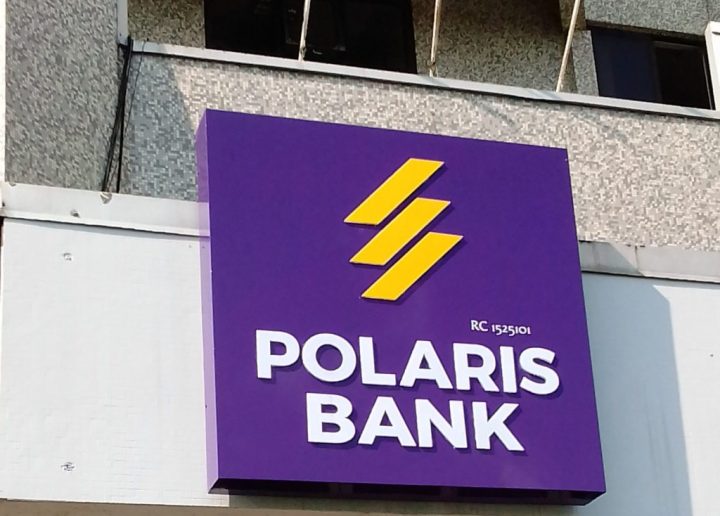Polaris Bank has convened its Global Trade Forum in Lagos with a strong emphasis on enhancing Nigeria’s non-oil export sector and providing a platform for stakeholders to chart a path toward sustainable growth. The event, themed “Trade Export: Partnering for Growth”, brought together exporters, regulators, policymakers, and industry experts to discuss challenges and opportunities shaping the nation’s export landscape.
Speaking at the forum, Polaris Bank’s Managing Director and Chief Executive Officer, Kayode Lawal, highlighted the critical role non-oil trade plays in diversifying Nigeria’s economy and creating long-term stability. He noted that for decades, the country’s heavy reliance on oil had exposed it to global price shocks, making the case that greater investments in agriculture, manufacturing, and services are vital for the future. According to him, the bank is determined not only to provide financing but also to help address structural challenges that hinder exporters, such as logistics bottlenecks, compliance requirements, and access to foreign markets.

The Nigerian Customs Service was well represented, with officials demonstrating the functionality of the Nigeria Trade Portal, a platform aimed at streamlining documentation and clearance processes for exporters. The tool is designed to reduce delays and promote efficiency at ports, ensuring businesses can move goods across borders more smoothly. Customs officers at the event acknowledged persistent complaints about slow processes and pledged to improve the system for traders.
Exporters at the gathering stressed that access to affordable trade finance remains one of their greatest challenges. Many small and medium-scale businesses struggle to secure loans to expand production or meet international requirements. In response, Polaris Bank unveiled tailored financing solutions and advisory services to guide exporters through the often complex regulatory and documentation landscape. Lawal explained that financial institutions must do more than disburse funds, but also provide mentorship and practical guidance that can help exporters meet global standards.
The importance of quality certifications and compliance was another major talking point. Industry experts noted that even when Nigerian producers succeed in boosting output, failure to meet foreign certification requirements often prevents their goods from reaching international markets. Polaris Bank emphasised that banks, regulators, and industry stakeholders must work collectively to close this gap by supporting producers through training, advisory services, and easier access to certification processes.
Technology featured prominently in the conversations. Participants agreed that export readiness in today’s global economy requires digital tools such as online payment systems, e-customs clearance, and access to real-time information on market opportunities. Demonstrations of the Nigeria Trade Portal underscored how digitalisation could reduce costs, shorten timelines, and expand opportunities for Nigerian exporters. Stakeholders noted that scaling up such innovations would be crucial to positioning Nigeria more competitively in global trade.
Despite these positive initiatives, exporters raised concerns over infrastructure deficits, high transport and energy costs, policy inconsistencies, and foreign exchange volatility. Several businesses argued that even when enabling policies are introduced, delays in implementation and systemic inefficiencies often undermine their impact. Issues such as congestion at ports, excessive charges, and challenges with forex remittances were highlighted as recurring obstacles.
Polaris Bank reassured participants that it would continue to deepen its involvement in tackling these challenges, not just through financing but by offering more extensive advisory support, building partnerships with trade organisations, and working closely with regulators. Lawal reiterated the bank’s commitment to “listening to exporters, co-creating solutions, and ensuring they receive the support required from paperwork to payment.”
The event also reinforced the importance of collaboration between the public and private sectors. Policy experts urged the government to provide consistent regulatory frameworks and streamline procedures to make market access easier. They stressed that a predictable and transparent policy environment would encourage more private investment in export-oriented ventures.
Looking ahead, outcomes from the Global Trade Forum are expected to influence Polaris Bank’s future product offerings and contribute to ongoing conversations around national trade policy. Stakeholders expressed optimism that if government agencies, financial institutions, and exporters align efforts, Nigeria’s non-oil export sector could expand significantly and contribute more robustly to the country’s foreign exchange reserves.
For many attendees, the forum was not just about dialogue but about building actionable partnerships. Exporters left with a sense of optimism that with sustained institutional support, access to financing, and stronger regulatory systems, Nigeria’s export sector can overcome persistent challenges and achieve meaningful growth.
Ultimately, Polaris Bank’s initiative was seen as a step toward repositioning the non-oil sector as a major driver of economic diversification. If promises made during the discussions are followed through, the forum could mark a turning point in Nigeria’s quest to become a more competitive player in global trade.
Support InfoStride News' Credible Journalism: Only credible journalism can guarantee a fair, accountable and transparent society, including democracy and government. It involves a lot of efforts and money. We need your support. Click here to Donate
